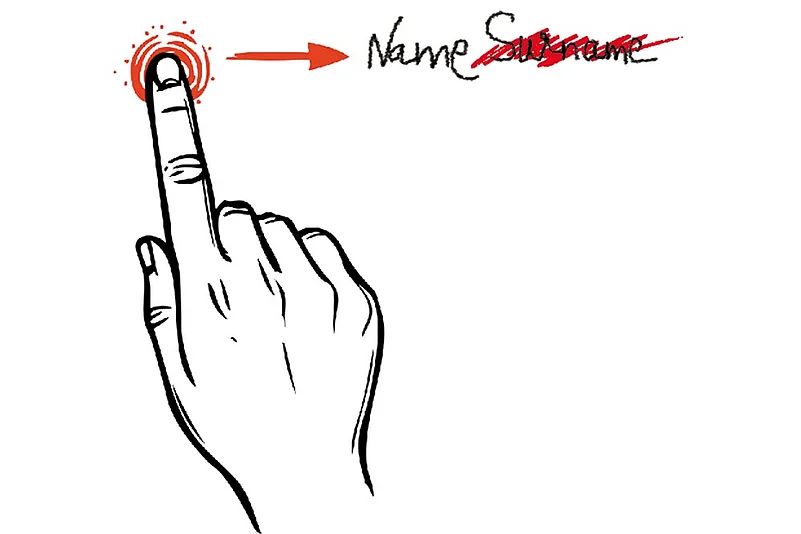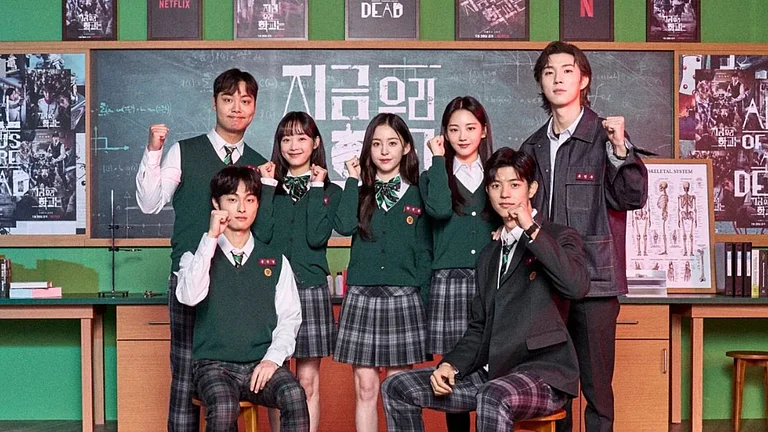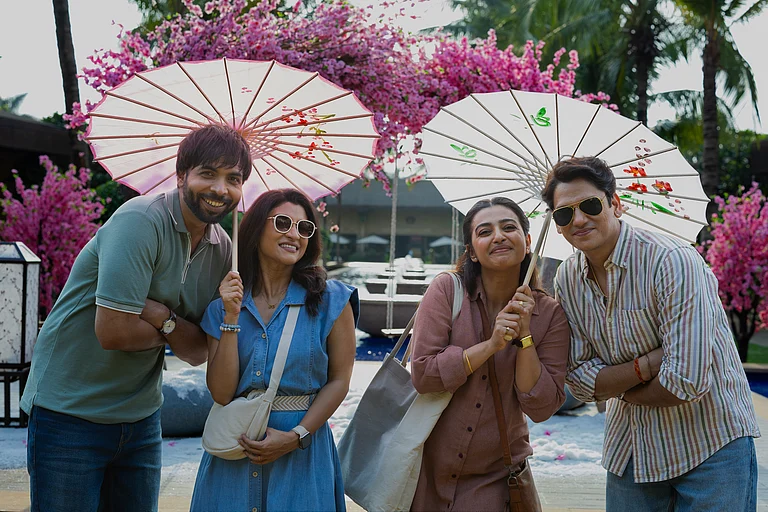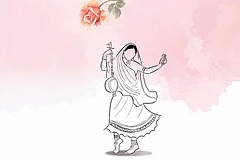Saloni*, who is in her mid-20s, could never imagine that the shadow of her caste identity would follow her in the world of dating apps until she started dating a ‘Tam-Bram’ (a short form for Tamil Brahmin) boy whom she ‘right-swiped’ seeing his ‘woke’ bio.
“In the bio, the guy wrote everything ‘progressive’—that he does not believe in caste, he is an atheist, politically moderate, and so on,” says Saloni. But gradually, as she started dating him, she saw different shades of him. “I belong to the OBC community. Whenever he got angry, he used casteist slurs to humiliate me,” she adds.
They continued dating for almost a year, and by the time the façade of his ‘wokeness’ vanished, Saloni managed to get rid of him. While the caste discrimination that she faced on the dating app OKCupid is quite prevalent and mirrors the everyday reality of society, what is confounding is that most of the apps promise a caste/class-less experience.
Most of these apps, including the recent favorite Hinge, leave the inclusion of surnames in the profile entirely to users. The help centre of Hinge notes: “If you create an account with Facebook, your last name will be added to your profile but it will only be visible when you match with someone, not when someone views your profile in Discover.”
While such efforts—of not letting caste take over one’s choice of ‘right-swiping’—are considered a step in the right direction, users feel that those who prioritise caste identity have ways to figure it out.
Adrija, who ‘met’ her husband on an online dating app, says: “Factors like caste and community did not matter to me, so I did not bother much about that aspect. But for many, it is a deciding factor and it will come up in the first few conversations itself.” For her, the world of dating apps mirrors the real world and the world of matrimonial apps; the only difference is that the apps “give more control to individuals, and not families, to decide what factors matter to them”.
But does it require the mentioning of caste at all in dating apps to subject the marginalised communities to ruthless discrimination. Ravikant Kisana, a professor of cultural studies at Woxsen University, Hyderabad, writes in one of his articles: “A certain aesthetic language and cultural sensibility have come to be positioned as markers of taste and refinement—to the exclusion of people who don’t or can’t adhere.”
“Unless society is answering the deeper questions, we can only expect technology to merely play second fiddle to casteist attitudes or casteist sentiments”
Referring to the ubiquitous acceptance of the Savarna culture, Kisana adds: “It’s unrecognisable as particularly Savarna culture because of its ubiquity—be it the lanky boy with a head full of curly hair who busks at Church Street in Bengaluru, the spoken poetess who is perennially in a bindi and a saree handed down from her grandmother (which she never fails to mention), or the Djembe-carrying shayar sahab who runs his own drum circle in Pune, and quotes Jaun Elia in Urdu (because Faiz is too mainstream after the CAA/NRC protests)—it’s an aspirational aesthetic.”
Against this backdrop, talking about the intersection of systematic hierarchy and the desire that shapes the choice, Dalit activist Christina Dhanuja says: “Due to the relation between systematic hierarchy, caste, class and desire, one doesn’t need to reveal it. It is similar to the real, material world. We are so adept in finding people’s caste, we either subconsciously or unconsciously already know who they are, and approach them.”
The major aesthetic markers that reveal the caste/class identity of a person come through pictures, location, bio notes, etc. “Through the picture, through the language and way of writing of your answers, the way you describe yourself or the type of photos you post—all of that will definitely contribute to different kinds of systematic markers that one adept within specific caste and class context can pick up on,” adds Dhanuja.
However, sometimes, even complying with all the Savarna markers does not get one rid of their caste identity. Though Suryakant*, who belongs to a Dalit family, managed to get through elite educational institutes and bagged what Savarnas consider to be a ‘good job’, he couldn’t overcome the burden of his caste while dating an upper-caste woman.
Strictly maintaining his anonymity, Suryankant says, “She right-swiped my profile perhaps due to my bio, pictures and other things that don’t reveal my caste identity. However, when she started coming to my house and after a few meetings saw portraits of Dr Ambedkar and Jyotiba Phule next to the Buddhist statue, she was visibly disturbed.” The upper-caste woman was so annoyed that she charged Suryakant with hiding his caste identity to ‘hook up’ with her.
So, it does not matter if dating apps have the provision of mentioning surnames or not, once the users start meeting each other, caste will rear its ugly head, says Dhanuja. Such discrimination in making choices spills over to other markers as well. A Mumbai-based user of dating apps mentions how plus-size people suffer due to their body type. “Men want to sexually engage with us in private but they don’t want to actually be with us in public,” she says.
While caste identity and appearance work in tandem when it comes to popular dating apps like OKCupid, Hinge, Bumble or Tinder, there are exclusive spaces of dating for high-class elite celebrities as well. Raya is one of them. The New York Times has termed this app as ‘Illuminati Tinder’ where people can get membership only through references.
However, even after the recommendations, one must wait for the final approval. As per a popular study, this members-only platform has a lower rate of admission than Harvard Business School. Indian celebrities like Janhvi Kapoor, Vani Kapoor and Neha Sharma—to name a few—are a part of the network.
Talking about the exclusivity of such celebrity dating apps, Adrija says: “I think these exclusive dating apps are pretty much a reflection of the kind of society we are living in and how we look at relationships/marriages in general.”
MORE FROM THIS ISSUE
These exclusive apps are not the only space where financial mobility of users matter. Even in regular apps, one can opt for a premium subscription which will augment their chances of finding a match. This indicates that technology in no way flattens social differences, rather it replicates the social cleavages. “Unless society is answering the deeper questions, we can expect technology to merely play second fiddle to casteist attitudes or casteist sentiments,” says Dhanuja.

































